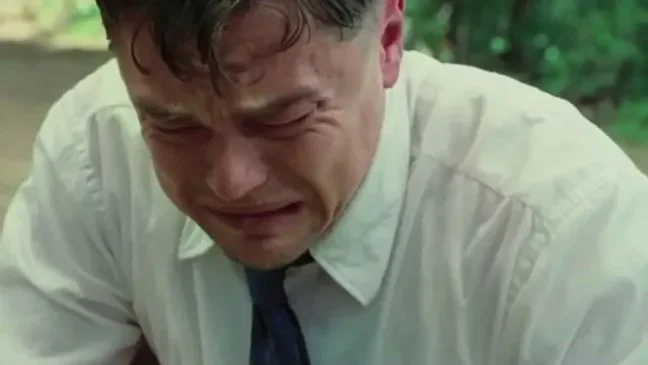Why Guys Suck at Grief and How They Can Suck Slightly Less
When it comes to grief, we guys suck. Not because we don’t have deep feelings—of course we do! We simply suck at showing them. We all know the established reasons why—men don’t want to look weak or vulnerable. We’ve been taught by generations of stoic dudes before us to “man up” or “be a man.” We believe actions speak louder than words, so with certain exceptions (like when we’re mansplaining), we tend to shut the hell up and get on with our lives.
We also feel the need to “stay strong,” to say nothing of maintaining the illusion of being in control even when we’re not. We are terrific problem solvers, fixing whatever is broken, including ourselves. We’re especially adept at compartmentalizing, stowing our emotions away for a rainy day that, in some cases, never comes.
As if that weren’t enough, guys don’t like to be judged for expressing emotions, which many men wouldn’t know how to do even if they wanted to do it. Which they decidedly do not.
When my older son, Rob, took his own life six and a half years ago, I cried like I had never cried before. It was the brutal and guttural kind of crying, and I described it at the time as “the sound of my family being destroyed.” Rob’s death cracked me wide open and I’ve remained open ever since. In every sense of the word. I remember speaking with one of my many therapists years ago, when Rob first went off the deep end, and telling her how I walk around feeling like a closed fist. All I want, I told her, is to be able to do this: I then slowly opened my hand.
Little did I know that cracking open my heart would turn out to be the greatest gift Rob ever gave to me.
Of course, I’m not suggesting that men have to lose a child in order to feel their feelings, but I am suggesting that sharing those feelings with the world has been nothing short of a revelation. It has accelerated my healing process exponentially and has filled me up like nothing else before or since.
I wrote a book about it called A Space in the Heart: A Survival Guide for Grieving Parents that has helped innumerable members of the world’s worst club, and I’ve subsequently become a grief coach and group leader at Our House Grief Support Center in Los Angeles. I see some guys cry in these weekly grief groups—which are largely filled with women—and all of them cry in the one-on-one sessions I have with bereaved fathers. And, if the mood strikes me—which it often does—I cry right along with them.
One of the many things I’ve learned stumbling down the rocky grief road is that, at some point, we must make choices on how to proceed with the rest of our lives, and being open—in both our hearts and our heads—to anything that will help us heal is one of the most important and self-loving decisions we will ever make. It’s not for the faint of heart. In fact, opening yourself up to the world and just letting go is one of the bravest things you’ll ever do.
Just ask any woman.
For us guys, however, it’s always been scary. We tend to get trapped inside our heads when it’s our hearts that need our attention as they slowly begin the healing process. It takes a tremendous amount of strength and courage to face our emotions rather than deny them. I’m not talking about the fear of looking timid and helpless in front of other people, though that’s definitely a thing. It’s more the fear of starting to hurt so profoundly that we may not know how to stop it.
What really happens is the exact opposite. It feels a little like skydiving: a leap of faith. When you first jump out of a plane, you’re free-falling and there’s a moment of panic. Then the adrenaline kicks in and the freedom of letting go and facing your fear is nothing short of exhilarating. Once you choose to open your heart and not only feel the pain but also give it a voice and cry the way I cried when Rob died, it comes as such a relief and release, and the more you do it, the more it becomes a part of who you are.
Because, like it or not, grief changes us forever. And often for the better. But it doesn’t just happen by itself. We must be open to it. There’s a quote from Anaïs Nin, who knew a few things about living a meaningful life, that has stayed with me ever since Rob died: “And the time came when the risk to remain tight in a bud was more painful than the risk it took to blossom.”
Being a dude, I’d hesitate to use the verb “blossom” (I’d prefer that opening hand metaphor), but I most certainly have changed. I didn’t realize just how much until nearly a year after Rob’s death. It was difficult to imagine that something good could have come from that loss, but I have become more patient and forgiving. I let many more things slide. I’m softer. Almost all of my edges have worn away.
I’ve also become less scared and more openhearted than I’ve ever been in my life. I spend more time in the here and now and less time revisiting the past. I focus on the things that really matter to me—mainly, loving all the people in my heart—and I no longer let petty matters ruin my day.
Which is not to say that I’m no longer capable of being an asshole, but I’m a kinder, gentler asshole.
And it’s all thanks to Rob.
Larry Carlat is the author of A Space in the Heart: A Survival Guide for Grieving Parents.

